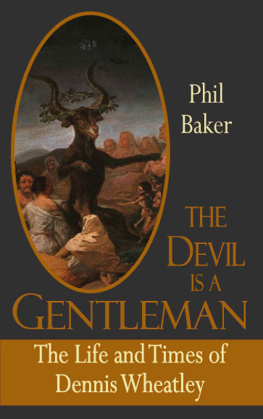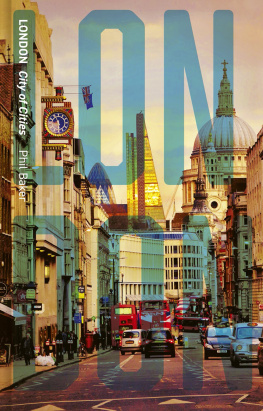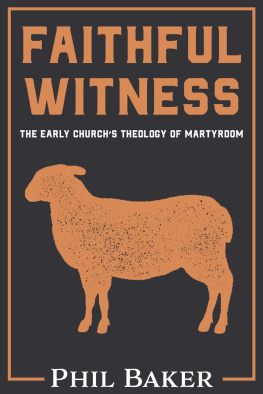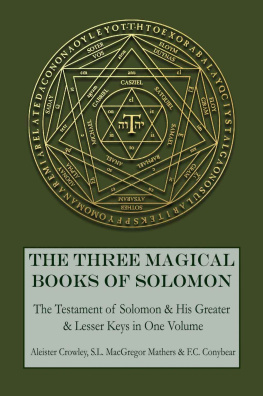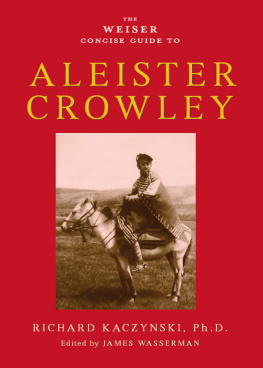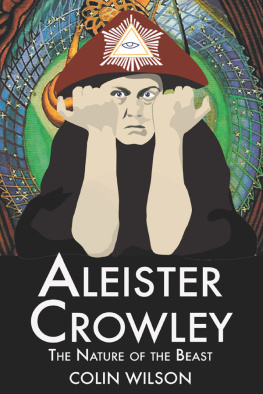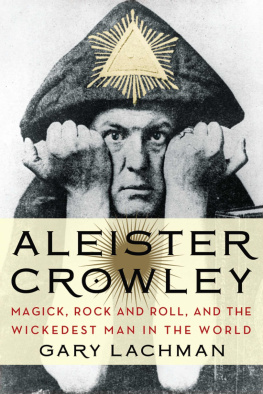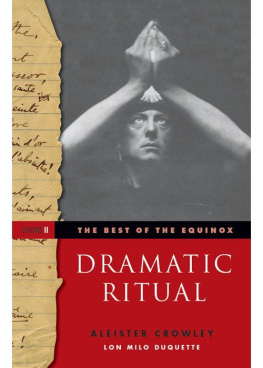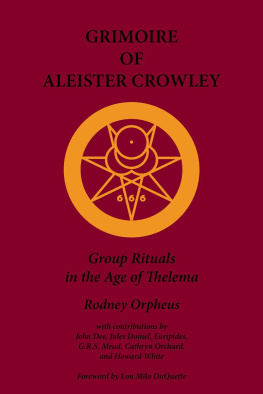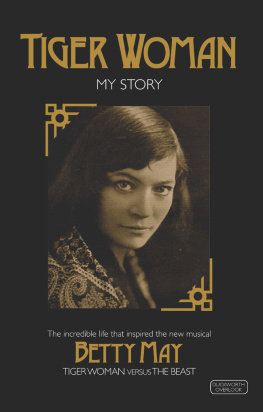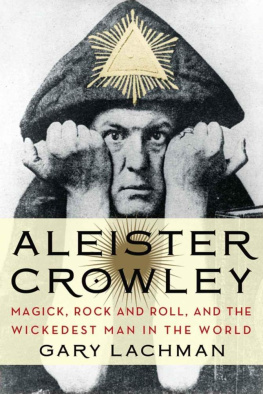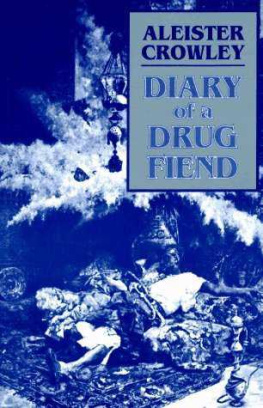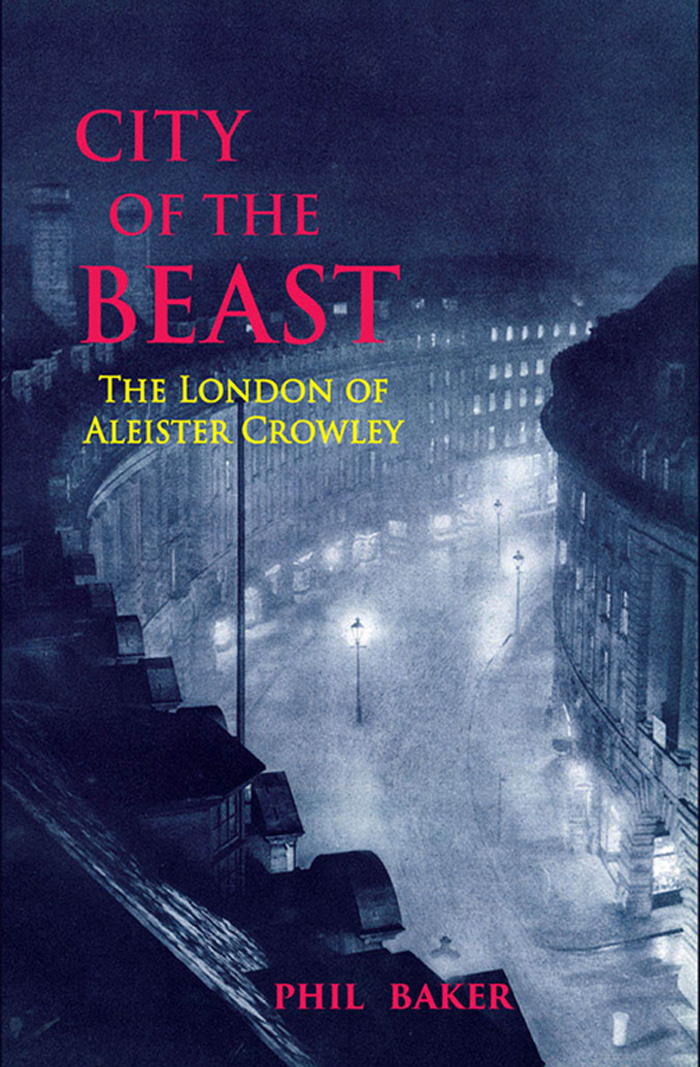In memory of the women: Blackley, Brooksmith, Busch, Clarke, Donley, Falconer, de Miramar, Pickett, Speller, Wakeford and the rest.
City of the Beast: The London of Aleister Crowley by Phil Baker
First Published by Strange Attractor Press 2022.
Text 2022 Phil Baker
The Mad Grey City 2021 Timothy dArch Smith
All unpublished Crowley material 2022 Ordo Templi Orientis
Cover photograph: Regent Street 1930s, by Harold Burdekin
Book design/layout by Maa Gaffney-Hyde
Set in Bunyan Pro
ISBN: 9781913689322
Phil Baker has asserted his moral right to be identified as the author of this work in accordance with the Copyright, Designs and Patents Act, 1988. All rights reserved. No part of this publication may be reproduced in any form or by any means without the written permission of the publishers.

Strange Attractor Press
BM SAP
London, WC1N 3XX
UK
Distributed by The MIT Press, Cambridge, Massachusetts.
And London, England.
d_r0
I dreamed I was paying a visit to London. It was a vivid, long, coherent, detailed affair of several days, with so much incident that it would make a good-sized volume.
Crowley in Cefalu, Sicily, 8 June 1920.
CONTENTS
THE MAD GREY CITY:
a Foreword by Timothy dArch Smith
Do what thou wilt shall be the whole of the Law.
Around 1908-9 Crowley was delivered of a Holy Book, Liber 65, Liber cordis cincti serpente. Chapter V, verse 3, reads:
Yea, cried the Holy One, and from Thy spark will I the Lord kindle a great light; I will burn through the grey city in the old and desolate land; I will cleanse it from its great impurity.
Crowley commented on this book in 1923:
The Angel spontaneously promises 666 that his True Will shall be made operative This Book was written down in London, and the apparent reference in the first instance is to that city. The text may mean that in some way or other 666 will become a great light, a portentous phenomenon pregnant with destruction in the eyes of its inhabitants it would appear that some such event is still in the future.
Commentary to Liber 65, (The Equinox, IV, 1, 1996 e.v.)
In the same place, he goes on to wonder what the numerical equivalent of grey city, (phaia polis) would be, employing Greek kabbalah. The answer is that it adds up to 902. Another word with the same number in this particular system, one that decrees that similarity to be of thought-provoking significance and not mere coincidence, is the word (paranoia): mad.
As we read Dr Baker's gripping guide to Crowley in London, it becomes clear that this is a fair enough description of the grey city where he lived, and moved, and had his being; and at the date these words are written perhaps an even fairer one.
Love is the law, love under will.
Timothy dArch Smith
in 14 : 19 : An. V6 : 7 October 2020 e.v.
INTRODUCTION: MAGUS ABOUT TOWN
Aleister Crowley hated London, or claimed to:
The very streets testify against the city. On the one hand we have pale stunted hurrying pygmies jostling each other in the bitter search for bread; an ant heap is a miracle of beauty and dignity in comparison. On the other, when it comes to excitement or amusement, we see perspiring brutes belching the fumes of beer; course, ugly parodies of apes. Nature affords no parallel to their degradation. There is no open air life, physical or mental, and there is the ever-abiding sense of sin and shame to obsess these slaves.
But at the same time, it was the capital of the civilization that produced him: he would never have been the man he was without the rich matrix of late Victorian culture behind him. Crowley believed in the invocation of gods and the channelling of spirits, but not least of the forces that spoke through him was the darker genius of Victorian and Edwardian Britain, and its cultural and sexual discontents.

I have drawn extensively on Crowley's unpublished diaries, dense with London detail, which give an exceptionally intimate and human picture of his day-to-day life. In a world of trigger warnings, I should add that they have something to offend everyone, even to appal, and that I don't intend to labour this aspect; Crowley can speak for himself. When he writes in a 1913 letter that speaking as a man of the world, I am a reactionary Tory of the most bigoted type he wasn't being flippant. His diaries, letters and even published work are strewn with unapologetically bigoted and defiantly transgressive comments, like a product of political Tourette's. As the world dumbs down, it is likely that in fifty years many readers will assume that this is just what people in Britain were like, then. It is not. Crowley was well out on a limb and deliberately provocative, like a caricature of the mad Tory squire from Hell, and he was aware that he was doing it.
More actively, going beyond simple discretion, on another occasion he writes a fictional entry for his current partner to find, almost like an alibi or at least his version of events, and later notes this when he corrects it.
This aspect of writing-for-others is relevant to the testimonials (as they effectively are) that he writes for his own health products, his Amrita rejuvenation pills, and for the rapid effectiveness of magical practices. It might also shed light on his almost inexplicable account of triumph in a court case that he has in fact lost, or another lost court case where he implies that he might have won, if only asthma hadn't stopped me spilling the beans in the witness box. These are attempts to present his side for posterity, perhaps feeling his diaries would be read long after the day's court reportage had been forgotten.
There is an acute moment in this matter of future readership when Crowley finds himself missing some manuscripts. He then wonders if, rather than someone thieving them for gain, it might be his supernatural masters the Secret Chiefs who were behind their disappearance, as a form of censorship: There were a great many entries in some of the diaries, for example, which would no doubt be very dangerous to print. I do not think so, myself

and there are many flashes of this same intelligence in the diaries. Alternating between exultation and depression, he is also dogged by moments of rather passive superstition (An awful day. Eleven things went wrong in the queerest way) while on the other hand there are small gifts of good luck: accidentally long-changed by ten shillings in Soho restaurant Chez Victor, he writes a really charming gesture of the Gods. Made complete difference to my whole day. Ten shillings was worth having in 1938, but he can also be candidly and almost endearingly small-time. Every day he threw the


